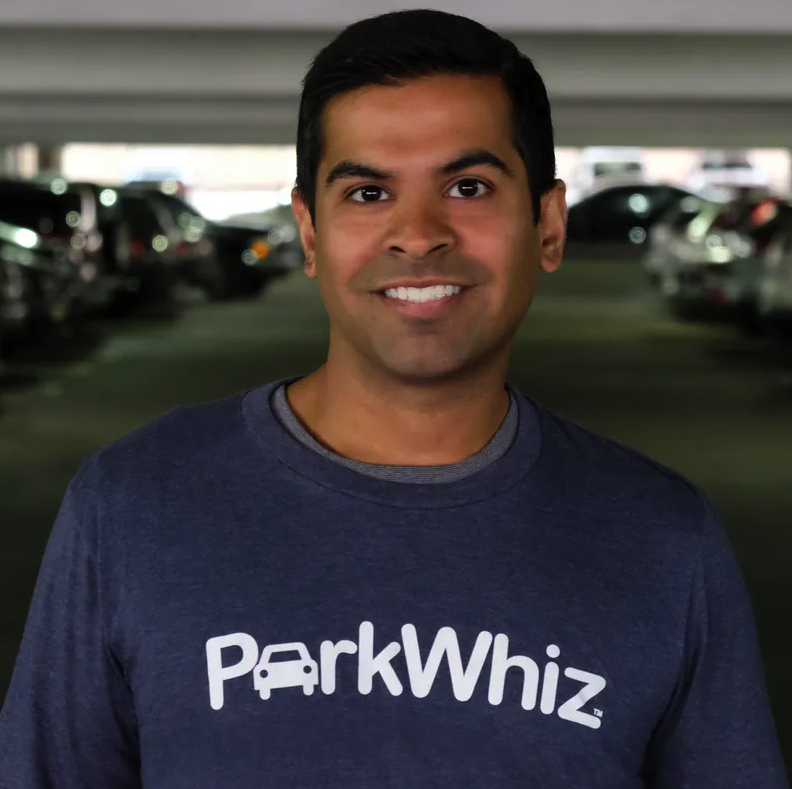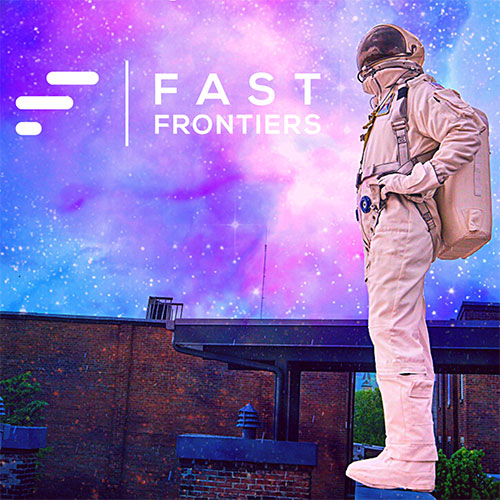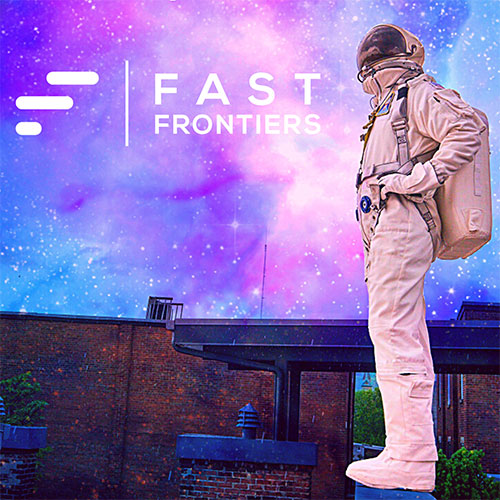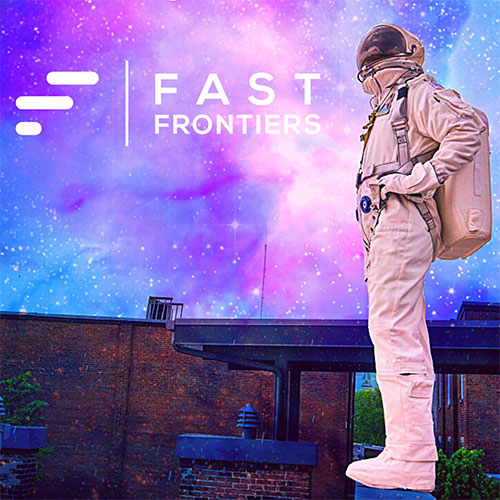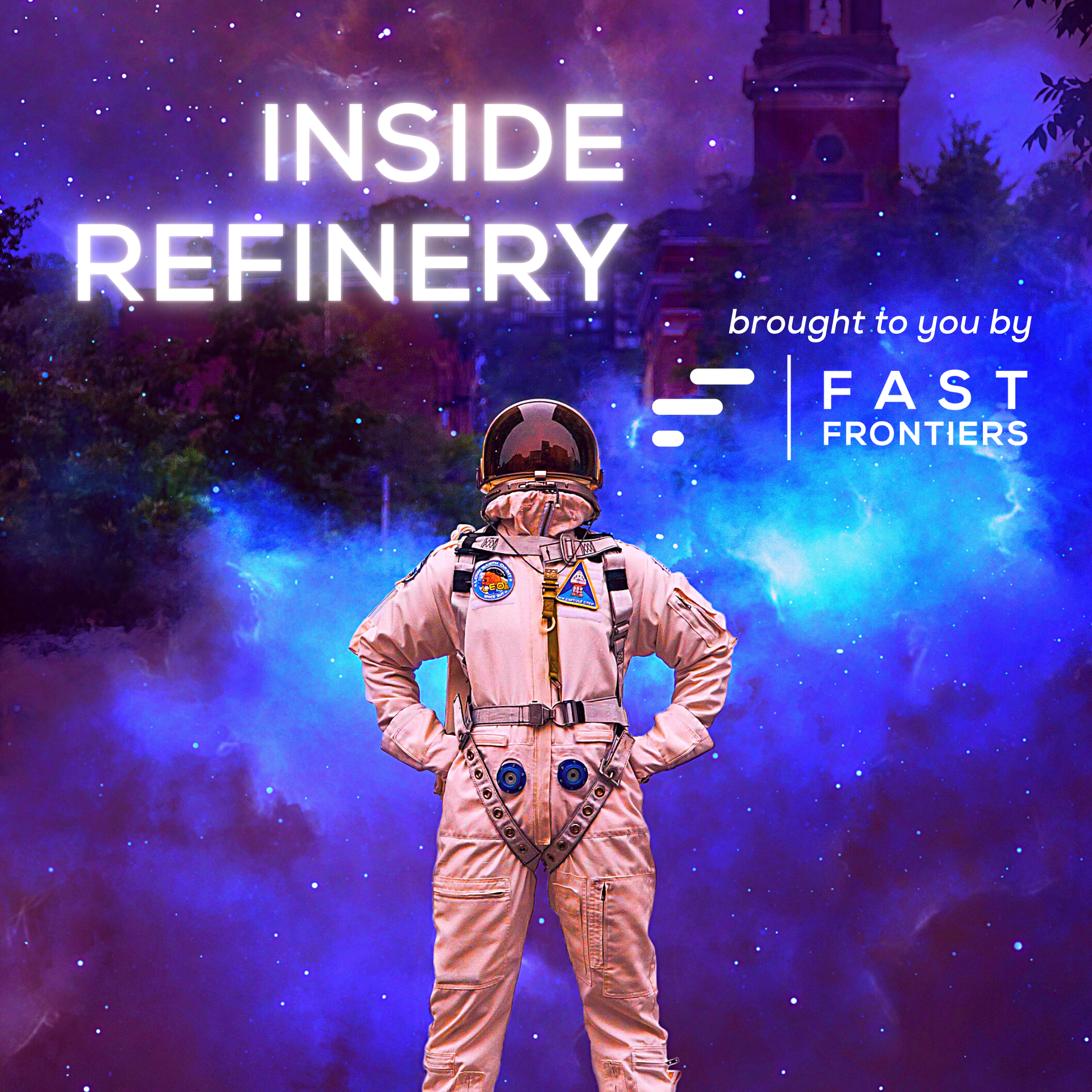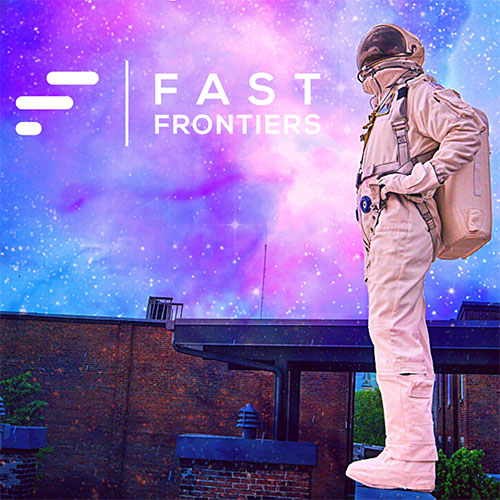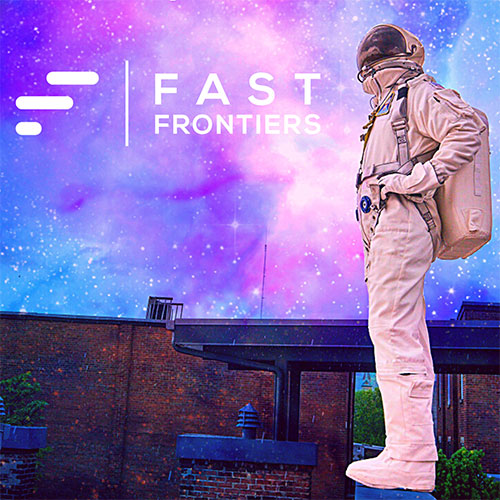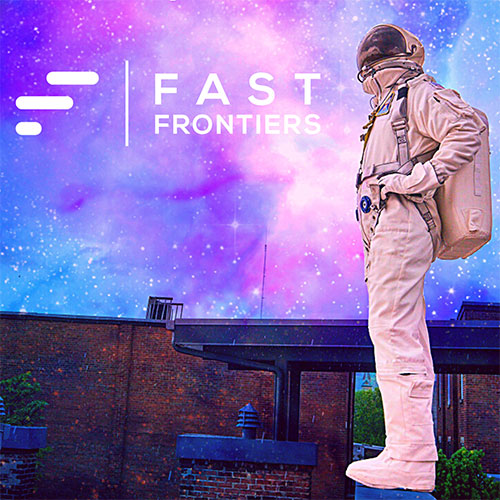S5 Ep 2. Aashish Dalal: Co-founder of ParkWhiz (now Arrive Mobility)
- 0.5
- 1
- 1.25
- 1.5
- 1.75
- 2
Tim Schigel: Welcome to Fast Frontiers. I'm your host, Tim Schigel, managing partner of Refinery Ventures. In this episode, we're talking with Aashish Dalal co- founder and CEO of what you probably know as ParkWhiz. Now, Arrive Mobility, a Chicago- based, on- demand parking app that matches drivers with open parking spots everywhere from downtown garages to ballpark neighborhoods. In this episode, we're going to dive into some of the myths about startups. How long does it take to grow a successful startup? In this case, ParkWhiz journey took 10 years. The first five years were bootstrapped with a two person team to get to that product market fit. Aashish shares with us many lessons learned along the way, from having a term sheet pulled during their first attempt at raising venture dollars, to understanding the proper structure for boards. The biggest theme or so what I hope you can take away from this conversation is that sometimes what seems as a failure, not being able to raise venture capital, is actually the best thing for your business long term. Making you reevaluate and refocus the idea to one that can work even better than you imagined. Aashish, welcome to Fast Frontiers. We're going to have so much fun talking today. I'm really excited about having this conversation.
Aashish Dalal: Well, thanks for having me, Tim. I appreciate it.
Tim Schigel: Yeah, we want to explore here what it means to be an entrepreneur, what it means to start and grow a company like you did with ParkWhiz. It's okay if I still use that name, because that's the name I knew. We'll talk through that. I also want to talk about... You're in Chicago, so we want to talk a little bit about midwest, Chicago, what it means to be an entrepreneur, venture backed in this region, and then finally some lessons learned. First of all, let's just go through the, if we can, love to just talk through kind of the history and timeline. There's a few things I'd love to dig deeper into on that, to maybe take on some myths about startups and what it takes and how long it takes. So let's start with a little history. First of all, the number one question is always, why did you start the company?
Aashish Dalal: Well, first of all, thanks again for having me, Tim. I'd say that, most people who know me would say that I'm a fairly practical person. But the truth is that, and I think my parents would double down on this statement, is that growing up, I was always that kid who had his head in the clouds. Where I would see the possible in the impossible. I've always been obsessed with getting from point A to point B in the most efficient way. So, getting around, getting here to there was always something that was a pain point for me. We used to go to India as a kid every few years during our winter vacations. As much as I loved being and seeing with family and hanging out with them, I hated, absolutely hated the trip. You'd be sitting on a 22 hour flight. As a 10 year old kid, nothing to do. You're bored out of your mind. I mean, remember, this is the late'80s, so there's no technology, to what we have today, to be able to pass the time. So the boredom that I had was so intense that it literally took away from any fun that I had. It took me a day or two just to acclimate. Naturally, this was something that got me fascinated with travel and mobility. But I then went to college and the idea of inefficiencies came again when I was at Northwestern. We would go to football games on Saturday mornings. I was lucky enough to be friends with someone who had a car, so we were able to drive. We were, of course, those naive sophomores who would get up to go tailgating, but not get to the stadium until just after all the parking was sold out. So we pull up to the stadium, there's literally no parking around. So we actually ended up pulling up on these side streets, parked at a family's house. A little girl literally held up a sign that said," Park here for$ 10." That was sort of where the light bulb went off for me. You sort of think about inefficiencies traveling, getting to a place, and then this idea of parking on game days. Still didn't even start ParkWhiz in college. It took me a few corporate jobs to realize my calling. But in 2007, that's when I made the plunge. Interestingly, that actually isn't... that last story wasn't the first iteration of ParkWhiz. We actually started it as a hardware company building these moats. When I say moats... when I say we, my co- founder and I, John, who I... finding him in and of itself was a challenge. But building these moats, these hardware devices that would sit into the real time... sit as a device under parking meters. For a variety of reasons, we decided we didn't want to be a hardware company, which we eventually pivoted to V2 to become what ParkWhiz truly was. But that was sort of the nutshell of how ParkWhiz got started.
Tim Schigel: Tell us more about how you found John and decided to have him be your co- founder.
Aashish Dalal: Yeah. I had made the personal choice right before I got married, which any aspiring entrepreneurs who are looking to find a spouse, who doesn't necessarily come from the entrepreneurial background, I would make you set those expectations a little sooner than I did. Because I sort of spurted on right before we were... right after we got engaged and right before our getting married. So was some interesting conversations. But what ended up happening is she was actually finishing up law school in Boston and I was working at IBM at the time, doing some consulting work. This idea, I had come across. She and I had talked a lot about pain points, things that were bothering her. For her, getting to and from the train station to her school, she was at Boston University, was extremely difficult. Especially on game days. Especially on game days where the Red Sox were playing, because Fenway Park was right by it. I said," Well, maybe there's something here." We decided not to do it on the T. The T is the public transportation, because there was a lot of litigation that I was worried about from IP. She was taking IP classes at the time. So I got really scared with regards to lawsuits. Even though I knew nothing about them, I knew I didn't want to get sued. So I moved towards... When she actually would drive to school, she couldn't find a parking spot. Because on game day, even though she actually had a parking permit, they would actually give away her spot to Red Sox fans. So that was sort of the Genesis, saying," Hmm, before you reach your destination, wouldn't it be great if you knew where you could park? Wouldn't it be great if you actually could have a space guarantee?" No different than you do on an airline. At the time, no different than a hotel. Movies. So I was like," Parking could be that next great frontier." So I started writing all these ideas down. Not on a back of a napkin, but close enough. Ended up getting the technology section. I started researching all the different technologies that we could use to sort of build this technology. I came across a paper. Had a professor who had written some really interesting things on wireless ad hoc networks. I just literally cold called him. I said," Professor Tom," his name was Tom Little. I said," Professor Tom, any chance that we could meet up? I could be interested in commercializing your paper." He said," Come on in." So I flew in. Met up with him. He happened to be literally at the same university as my wife was finishing up law school. So I said," There must be so something here. The fate of the world is lying in these stories." So I jumped at it. He said he had no intent on commercializing this technology, but actually would introduce me to students that could actually build the technology for me as part of their thesis project. So the students did that. They had no idea why they were doing it, but they completed it. And at the end of it, I ended up approaching all four of the students and asking them if anybody wanted to be foolish enough to join me in the startup. That's where I met John, my co- founder.
Tim Schigel: Yeah. Very cool. If you can, let's maybe just do a first high level pass. The 30,000 foot view arc of the timeline and journey of the company to today. And then we'll go back and dig in some key points.
Aashish Dalal: Yeah. As I mentioned, we started as a hardware company. This was roughly 2007. We made a hard pivot when we realized, one, we needed to raise a tremendous amount of capital. I was living in Chicago. I had moved back to Chicago after I got married. And then John moved back up to New York where he was from. We wanted to build sort of a remote company where he could do what he wanted to do, and I could do what I wanted to do. We realized that we would need to raise a tremendous amount of capital, and that our target market with these sensors that we had built was going to be cities. I had, in a previous life, sold to cities. It's a slog. We had spent about six months building the technology in the backend. When I say we, John. We decided," You know what? This just isn't going to fly." We took the guts of what John had built on the software side, and we said," You know what? We could use this framework to actually build..." At the time, the analogy was Expedia for parking. Where you could, again, have your parking in advance. The target segment that we really were going after was events. You go to a sporting event, you paid$ 500 for a couple of tickets, the last thing you want to have your event is ruined by not being able to find a parking spot. So that was the initial thesis. We were successful. We were able to scale it fairly quickly with very limited capital. We got fairly famous in terms of ESPN was calling us during the Super Bowl run. We hosted the... We did the Super Bowl in Dallas, Texas in 2009.
Tim Schigel: crosstalk.
Aashish Dalal: We were invited by the Super Bowl committee of the NFL because we literally had the entire parking market in Arlington. And we still do to this day. So they said," We need to work with you guys." So we were getting calls from ESPN radio, because on game day people needed parking spots. It was a fun ride. But then we realized we wanted to target a bigger parking segment. We were getting approached by some interesting players. We knew nothing about M& A or acquisitions. We were just having fun. But eBay reached out to us. At the time they had owned StubHub. They wanted to partner with us. We were intrigued by that, but we also wanted to go into the larger parking market, which we felt was a greater opportunity. Where the everyday parking, you go into the city and park, was$ 30 billion market. We wanted to slowly position ourselves for that target market.
Tim Schigel: Speaking of market size, did you attempt to figure out the market size for the event- based parking?
Aashish Dalal: We did. The event- based side of the parking is about$ 2 billion. Still a very healthy parking market. And definitely, for a company that wasn't venture backed, something in which we felt we had huge headroom in, which we could create a very viable business. But when we looked at the overall segment, we just felt that it was more intriguing and we had the ability to go after that greater$ 30 billion market.
Tim Schigel: Okay. So 2007, bootstrapping. 2009, dropped the hardware. Go to events. And then what?
Aashish Dalal: By this time, like I said, we had some interesting partners that had reached out to us. The StubHubs of the world who were interested in us from an M& A perspective, and then later from an investment perspective. Now we started seeing the greater opportunity. We had the infrastructure that we felt we could build into this broader parking market from a technology perspective. Now we started getting investment calls. Chicago, at the time, wasn't a very... When I moved here in 2007, or moved back to Chicago in 2007, wasn't a very effusive market from a venture perspective. Any entrepreneurs who lived here, for the most part, had to go to the coasts, had to truly be die hards with regards to living in Chicago. I mean, don't get me wrong, there were players, and those players still exist today, but you could count on your fingers how many players. Once you talk to them, you're back to zero. Well, so couple interesting points here. When we actually started ParkWhiz, I went out to try to raise capital in Chicago. So 2007, I ended up going out and trying to raise capital. We struck out. We struck out in a way that was unique to most entrepreneurs. We struck out by actually signing a term sheet with a fund here in Chicago, who ended up pulling the term sheet after we had signed. It was a scarring experience. It's what most entrepreneurs, hopefully, and luckily, don't have to go through. Because generally, once you sign a term sheet, there's usually not reasons why the term sheet would get pulled. Unless there's something really nefarious going on with the company. That wasn't the case with us. It was just that they had a change of heart. That was a really discouraging moment for us. It made me really think about whether I was doing the right thing. But John and I said," Screw it. We're going to just... We don't need the capital. We have a viable business here that can be bootstrapped." It took me a few months to get over that, but we were able to build the business over the next couple years. That first initial sort of foray into the venture was in 2007, but we didn't actually raise our first round of capital until late 2012.
Tim Schigel: But when you started getting that inbound interest from investors and whatnot, when you started going to the broader segment, when was that approximately?
Aashish Dalal: Yeah. 2012 is when sort of everything was hitting the fan with regards to commercial partners coming after us, saying,"Hey, do you have an API?" I had to look to John, saying," What's an API?" We were just, at that time, three people. So we didn't scale very fast. We were the antithesis, I guess, to sort of the fast growth. We saw the opportunity. I think that was where we knew, if we could build some of these key metrics, some of these key infrastructure pieces on the technology front, then we would have the opportunity to do as we please. At the time, several seed funds had approached us, some in Chicago and some outside of Chicago. We decided to move forward with a Chicago investor.
Tim Schigel: What was your market footprint at that time?
Aashish Dalal: Yeah. We were only on the event side, but at the time... I don't know exactly, but I think we were in about 12 different major sporting venues, where we provided either officially or unofficially the parking market around those stadiums. About 22 other concert and stadium- like venues, and then there was a handful other. So we had about 50 to 60 different types of venues that we were servicing, with over 150 parking facilities that serviced those areas.
Tim Schigel: You had the good fortune of having some good PR, because of high visibility events, and you had some decent metrics.
Aashish Dalal: Yeah. I mean, we were hustling. We were hustling between the PR and the sales side, that consumed most of my... When I say sale side, supply acquisition on a two- sided marketplace, you've got to build the inventory. So for us, for me, explicitly, and John did this... John, he's a technology guy, but I give him credit because when he needed to, he would do his hustling. Where he'd have to go and talk to parking operators who are not a pleasant... Generally speaking, they're not a pleasant bunch. If you're interrupting someone's day, nobody likes that. But when you're interrupting a parking guy's day, a parking dude, they're not the most of pleasant people, and they can be very gruff around the edges. So I give him credit for getting rejected as much as I did.
Tim Schigel: Okay. So you raised your first venture and then...
Aashish Dalal: Yeah. We raised our first round of capital. And by that point in time, we had grown to about eight to 10 people. The initial capital was really to prove out the thesis that we can build and go deeper into this broader parking segment, what we call transient parking. So a lot of it was building the infrastructure, the technology. Going to build an event is fairly simplistic. It's static in nature. You know when the event begins, you know when the event ends, you know when people are coming and when they're going. The backend infrastructure is fairly simplistic. When you're talking about transient parking, there's over 100 to 200 different permutations. From 20 minute parking segments, all the way up to 24 hour segments, monthly parking, and then being able to accommodate a consumer who has to park at various different points, let alone managing the inventory on site to make sure you don't have oversolds is infinitely more complex. So building that backend and bringing on the right team to be able to scale it appropriately was definitely a challenge. And then of course, building out the sales infrastructure team to go out and secure additional supply was where those capital dollars were going to be spent. So that's how we used that sort of first seed money. We were successful enough to grow into raising our second round about 18 months later.
Tim Schigel: Great. And then fast forward to the next major milestones, acquire and where you are today.
Aashish Dalal: Yeah. By the time we... Now we're into 2015. There was a handful of companies that were doing similar. We wanted to enter the New York parking market. The New York parking market was the biggest parking market. So, for us, you could throw a bunch of dollars at the problem. Customer acquisition costs, let alone the lifetime value of that customer, wouldn't make economic sense to do that. There was already an incumbent in that market, a company called BestParking. Which a lot of people still use today, religiously. Especially in the New York area. We approached them for an acquisition. That was my first foray into acquiring a company of material size, and raising a capital round to sort of fulfill not only our capital needs as a standalone business, but also to use it to acquire a business. That was an interesting time and experience. And then integrating that company is very risky, but we were successful and had bright, key people to help us do that, with our investors and otherwise. But yeah, so that was 2016 in which we now were able to affectively add a major footprint to the overall ecosystem, and take advantage of some of the cool things we were doing on the technology front.
Tim Schigel: What's the status of the company today?
Aashish Dalal: Yeah. Fast forward, and like I said, this has been a long journey. I just sort of dated pretty quickly the prior eight... from 2008 to roughly 2016. 2018, I was fairly burnt out. Most entrepreneurs don't run their business for 10 years. At least venture- backed businesses. So having the ups and downs of bootstrapping it for the first five- ish years, and then another five years as a venture- backed company with a material acquisition and the integration really just... I think it took it out for me. I talked to one of my venture partners who I was very close with, he could see it on my face that I was just drained. A lot of the energy, the excitement that I had brought in 2015, I think the board could see that I just didn't have it in me anymore. So in 2018, I stepped down, moved into a chairman role from the CEO position. We brought on a new CEO. The entire management team did a fantastic job to position us over the last three years in which... and despite COVID. COVID was nothing anyone could have expected. But for a business like ours who's in mobility, definitely took a big bite out of the entire industry mobility, but definitely affected us in a very material way. We were fortunate enough to get back to some pre- COVID levels and have a soft landing spot where we were able to merge with a partner of ours in the hardware space called FlashParking. I feel extremely bullish that the combined entity will really disrupt parking over the next decade. And I'm really bullish upon what will come next for the entire organization.
Tim Schigel: I always find it fascinating to dig into the history of a company and understand some of the twists and turns. In particular, though, those early days back in 2007 to 2012, where you basically bootstrapped. It seems like I often find that to get to that real product market fit, if it's fair to say, that was kind of what was happening at that time for you. It seems like it's very hard to predict how long it'll take before that happens.
Aashish Dalal: Yep.
Tim Schigel: The key is to be as capital efficient as possible to get there. I mean, keep a low burn rate. You have three people. Keep trying. Keep going. And then it seemed like you started getting outside validation from strategics and from investors that what you had was working. Is that a fair assessment of what was happening?
Aashish Dalal: Yeah, no question. I don't think we scripted it that way. I don't think that was necessarily how we walked into the equation. Like I had mentioned earlier, we had set out to raise capital. To be honest, to be completely transparent, not necessarily for the right reasons. When we set out to raise capital, I think we were naive enough... we were naive enough to know to start a business that we probably shouldn't have, as most entrepreneurs do, which I think is a good thing. But we were also-
Tim Schigel: Need a little of that naivete. Yes.
Aashish Dalal: Exactly. You have to have a little bit of that. I'll go back to, you have to have the head just a little bit in the clouds to not know what you're doing enough to change and break the rules, but you also have to know what you want to use capital for. I don't think we necessarily at the time knew what we needed capital for. Because we, at the time, were focused on events and we could do it without capital. It was very capital efficient. But I will say, when I moved back to the Chicago market and started, even ParkWhiz version 1. 0, which was a hardware company, at the time Chicago was known for these bigger companies. The entrepreneurial community that exists today, candidly, didn't exist then. I mean, there were entrepreneurs, fantastic entrepreneurs. But mostly, if you talk to people on the streets, they were working at CPG type companies, the Pepsies of the world, Wrigleys of the world. When I would approach them, whether either through my network or friends of them, they didn't even know what an entrepreneur did. So as a result, I didn't have the know- how or the ability to connect with people who had it in their DNA to sort of operate the way I did. In fact, I thought there was something wrong with me. But, while Chicago, at the time, wasn't a major VC player, it was a highly tight entrepreneurial community. It was a very small entrepreneurial community. But among the handful of entrepreneurs that existed, they gave me so much, not only passion and energy, but insight into understanding how to build a company. I mean, we're talking about companies... the founders of OpenTable, Chuck, the founders of, now, GrubHub, Matt and Mike, Groupon and Andrew, Braintree and Brian Johnson. I mean, we all would get together as a entrepreneurial team for breakfasts. I think it was either every other week or once a month. And we would just talk about problems that we were having. Problems with the venture community in Chicago. Places we could go and reach other investors. But really, it was less about that, it was more about, how can we help each other? What I think exists today was sort of my experience of... If I didn't have that, I don't think I would be here today, because I probably would've burnt out and would've stopped ParkWhiz after we got burned by that first investor.
Tim Schigel: Wow. Yeah, that really important aspect of building the community is the entrepreneurs themselves connecting.
Aashish Dalal: I mean, there was only 10 of us. You look at the combined value of those companies today. The Braintrees and the Grubhubs can drive most of it, or the Groupons, but... We're talking, it was a fantastic opportunity for me personally, to be around people that had eventually created billions and billions dollars in value, who at the time had done nothing themselves. I mean, none of these guys were... I mean, they might have been entrepreneurial in their nature, but none of them had created... These were all first time entrepreneurs, so it was a fantastic opportunity for me to really soak in their insight and knowledge.
Tim Schigel: Sounds like the common thread was that network. That was a very special get together once a month.
Aashish Dalal: It was. It was.
Tim Schigel: You also have Alexis from Reddit as a seed investor, right?
Aashish Dalal: Yeah.
Tim Schigel: How did that come about?
Aashish Dalal: Yeah. Alexis and I connected, actually, interesting enough through my co- founder John. John was living in New York. John had met Alexis or people close to Alexis. Alexis, at the time, was obviously part of the Y Combinator community. And then he and Garry Tan, who, in his own right, is probably one of the top investors in the world today. I reached out to Alexis through a soft intro via John, and just said," Hey, this is what we're doing." I didn't know it at the time, but the reason Alexis was so interested, in his previous life, I don't know if it was high school or college, he was a valet attendant. So the parking problem was near and dear him. We built a very good friendship over the years. He's been extremely supportive of everything we've done through today. He's not the kind... Having been an entrepreneur, I've had a lot of ambassadors and been around the board table. To me, as much as even investors who aren't entrepreneurs can provide tremendous value, there's something that you get excited about when you're talking to a former or current entrepreneur. His understanding of the pain points that I would go through or that we would go through was something you just can't put a value on. So his support over those years was tremendous. He was always willing to tweet, help us out, get new followers. So I'm grateful for just the opportunity. He came into our office once, did a town hall with us. I asked him questions. I mean, I think at the time we had about a hundred employees. I don't think there was an... everyone was glued to every word he had to say. Because I didn't realize it, because millennial generation, but they worship everything he has to say. So I was pretty popular that day amongst my employees.
Tim Schigel: That's awesome. Aashish, from that experience that you've had, reflecting on it, thinking about your future, what would you say are your top lessons learned that you're going to carry with you into your next venture?
Aashish Dalal: Yeah. I mean, I made pretty much every mistake you could possibly make as an entrepreneur. It's funny, I can tell you one story that now, in retrospect, at least on the corp dev side... Again, this was 2010. We got approached by eBay. We were thrilled. We're like," What the heck? eBay's approaching us to acquire a company." I did everything you possibly do to hijack that deal, in terms of revealing everything to our champion, in terms of what we were doing, the secret sauce. To the point where I almost convinced them probably not to make a bid, an acquisition of us. So, over the years, I've learned so much about even just having a board. My first board meeting was a disaster. I can say that with my former board members could probably attest to that. Just the way it went. I only adhered to having a board of one. I mean, John and I talked all the time. But just not knowing certain things and the protocols, and the ways to conduct yourself, and the ways to prepare in advance of those meetings, and the metrics that you need to have across the entire spectrum, I think those things are things that I can look back now and laugh. I think I'm now at the point I can laugh about them. I probably would've cried about them before, but I can laugh about it now. But overall, just the people, the connections. I've met amazing people along the way. We talked about Alexis, but I would say another sort of rockstar advisor, friend that I was fortunate, who gave me some unbelievable advice, that I've sort of passed it on to other aspiring entrepreneurs, was Dick Costolo. Dick, at the time, was living in Chicago. He and his co- founders had built Feedburner. They had just sold it to Google. They were finishing up their time at Google. I think this was about six months before Dick ended up moving out to the Bay area to become the CEO of Twitter. Dick was the one who gave me feedback on that first term sheet. He in fact told me to run away from this term sheet," Don't sign it." I didn't understand any of the terms. I knew none of these terms. At the time, there wasn't that much democracy of understanding where to go on the internet to understand this kind of information. So all of these terms I had my attorney review, but attorneys at the time were costing 500 bucks an hour. I couldn't afford it. So between my wife, who's a lawyer, and me, we were trying to decipher all of this. Dick was able to distill it to me, basically in a couple sentences, saying," You don't want to sign this." I was grateful for his advice and he had given me so many other nuggets that I share. I was actually going to leave Chicago. My wife and I talked about moving to the Bay area, because we're like," Listen, it doesn't seem like we can survive in Chicago with the community that it currently has, from an entrepreneur's perspective. There's not enough venture dollars. And they're not interested in what we're building." But Dick said to me," Aashish, if you can't build a startup in Chicago, you can't build it anywhere." I mean, the venture market might be what it is, but at the end of the day, a good business can survive anywhere. That really meant a lot to me, in that, it doesn't matter where you are, it matters just how you execute. We obviously stayed in Chicago. I've taken that advice to others who get caught up in vanity metrics, who get caught up in other things that just aren't relevant to the business. I say," You got to focus." So as I think about what's next for me, right now, I think we're at the frontier of a very interesting time. If you think about sort of... I mean, Chris Dixon has done a phenomenal job of helping people understand, at Andreessen, sort of the phases of where we've gone from web one to web two, sort of the accelerated timeframe of web two with mobile. Today, I think we're embarking on a really cool time at web three, if people accept that we're at web three, around what crypto's doing, and what decentralized systems are going to do and how it could potentially flip the heads of all companies. It's always been a good time to be an entrepreneur over the last decade, but I think it's going to be even more phenomenal. I'm really bullish about where that's going to take me, and where that's going to take everyone from this economy.
Tim Schigel: That's terrific. You learned a lot. You overcame adversity, which I think is a true sign of a leader. And are now able to perhaps do it again, but also, maybe more importantly, share it with other budding entrepreneurs. Who I hope are listening to the podcast today to hear some of your stories. Hopefully they could relate to them. Aashish, thank you very much for coming on Fast Frontiers.
Aashish Dalal: Hey, Tim, I appreciate it. Thanks again for having me.
Tim Schigel: Thanks for listening to Fast Frontiers. If you like our show and want to know more, check out our website, fastfrontiers. com. If you enjoyed this episode, please share it with others and leave us a review on your favorite podcast platform. Join us next week when we bring you my conversation with Steve Escaravage, senior vice president at Booz Allen. The Fast Frontiers Podcast is brought to you by Refinery Ventures. Our producer is Abby Fittes. Audio engineering by Astronomic Audio, and our podcast platform is Casted.
DESCRIPTION
Host Tim Schigel is joined by Co-founder and Chairman of Arrive Mobility, Aashish Dalal, to talk about his journey taking ParkWhiz from inception to present day as Arrive Mobility. Aashish walks through growing the company's footprint, naïveté about investor capital, and ultimately the business lessons and relationships that helped ParkWhiz find success.
Today's Host

Tim Schigel
Today's Guests
